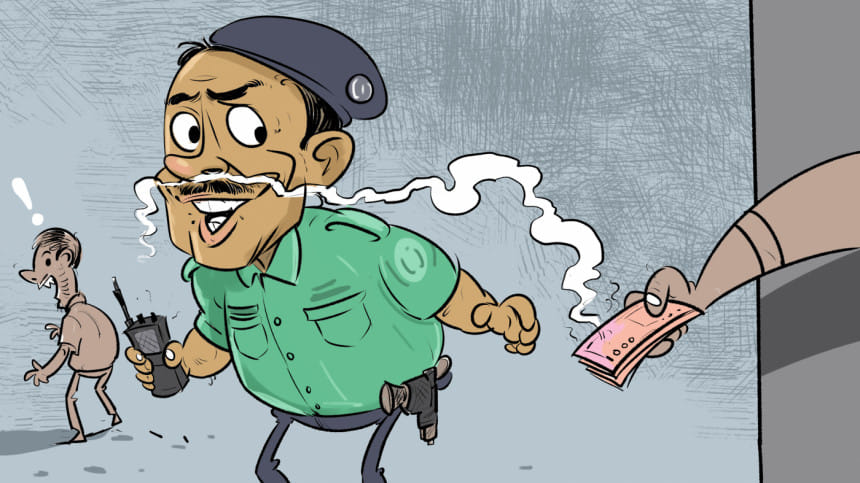
recent times are indeed distressing. Quite clearly, if legally mandated protectors become violators, there is a cause for concern. Additionally, there is a premonition that the criminal actions of such delinquent police personnel have not been adequately dealt with by the authorities concerned, and such deficits have eroded the trust of a vital regulatory organ of the state to the detriment of public interest. The need, according to some observers, is firm for adequate action against the defaulting personnel and establishment of an independent institutional mechanism to discipline and punish the gross deviators.
Ground realities will indicate the existence of laws, rules and regulations that should be sufficient to effectively take care of the criminally disposed lawmen. The Police Regulations, Bengal, 1943, the Police Officers (Special Provisions) Ordinance, 1976 (as amended from time to time), and the Government Servants (Discipline and Appeal) Rules, 1985, in addition to actions under the substantive penal law—that is the Bangladesh Penal Code—can be resorted to for sorting out the delinquent police personnel.
In a situation as above, if appropriate measures have not been undertaken to rein in the deviant lawmen, then the fault primarily lies with the suspected laxity of the supervising complement of officials, and by extension on the political executives who have not displayed the required will to facilitate the appropriate nurturing of a professional body. Surely the criminal activity of sworn lawmen is an unpardonable assault on the ethos of public service. There is reason to suspect a deficit of stewardship—both at the official and political levels.
It is perhaps worthwhile to appreciate that statistics is not the determining factor in gauging the pernicious ramifications of criminal behaviour in law enforcement. One lone instance of criminal activity by a policeman is sufficient enough to smear the good name of the entire organisation and set at naught the commendable services of countless others. It will be relevant to recollect that in the recent past, a grave offence by one officer was instrumental in the voluntary resignation of the commissioner of London Metropolitan Police.
Insofar as crime by a policeman is concerned, a pertinent issue would be the correctness of the recruitment process. Has there been extraneous or extra-departmental intervention in the intake? Since there is apprehension about the integrity of the recruitment venture, one needs to know of the steps taken to effectively sanitise the process.
Experienced practitioners of law enforcement are of the considered view that some bad hats with criminal propensity would still be there no matter how rigorous the recruitment and training-motivation are. The question is: how should they be dealt with? This writer is of the view that regular criminal proceedings should commence, that is lodging of the first information report (FIR) and simultaneous suspension from public service when a police personnel commits serious crime. The personnel should be arrested and a charge sheet that will strengthen the accusation should be expedited in all appropriate cases. If a conviction follows, it would be a simple formality to get rid of the delinquents. If no conviction comes, there is no bar to departmental action on the same charges. In fact, no quarter should be given to a criminal law enforcer.
About restructuring the police force to regain the alleged lack of public trust, the shortfall in supervisory competence needs to be addressed by bringing about essential qualitative and quantitative improvements in the existing disproportionate officer-to-lower-ranks ratio. The goal is to have adequately trained and well-equipped professional officers at the managerial levels.
The onus of ensuring malpractice-free management of the police force—including recruitment, promotions, postings and transfers—squarely rests with the police hierarchy. Quality human resource management, efficient use of financial resources, and adoption of modern technologies are some of the other areas that need initiatives from police leadership as well.
The most important prerequisite is enough political will to transform police units into 21st century service delivery organisations based on established best practices. The way forward is to proactively give up long-held powers of “superintendents” over the police in favour of apolitical public safety commissions charged with the responsibility of ensuring professional police operations. The realisation has to dawn on all concerned that improving the quality of law enforcement is a permanent and integral part of the national agenda, regardless of which party is in power.
Muhammad Nurul Huda is a former IGP of Bangladesh Police.
Daily Star









